D.M. Murdock Quotes & Sayings
Enjoy the top 11 famous quotes, sayings and quotations by D.M. Murdock.
Famous Quotes By D.M. Murdock
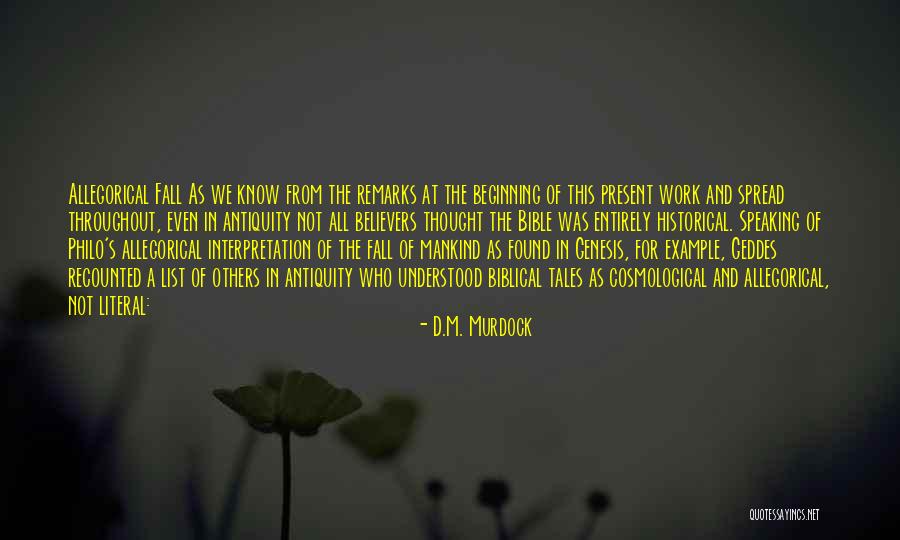
Allegorical Fall As we know from the remarks at the beginning of this present work and spread throughout, even in antiquity not all believers thought the Bible was entirely historical. Speaking of Philo's allegorical interpretation of the fall of mankind as found in Genesis, for example, Geddes recounted a list of others in antiquity who understood biblical tales as cosmological and allegorical, not literal: — D.M. Murdock
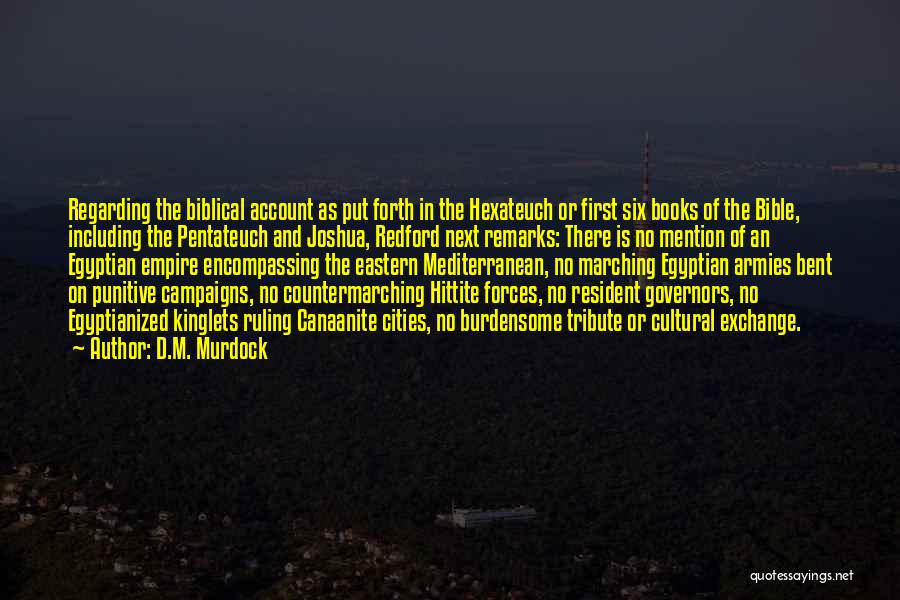
Regarding the biblical account as put forth in the Hexateuch or first six books of the Bible, including the Pentateuch and Joshua, Redford next remarks: There is no mention of an Egyptian empire encompassing the eastern Mediterranean, no marching Egyptian armies bent on punitive campaigns, no countermarching Hittite forces, no resident governors, no Egyptianized kinglets ruling Canaanite cities, no burdensome tribute or cultural exchange. — D.M. Murdock
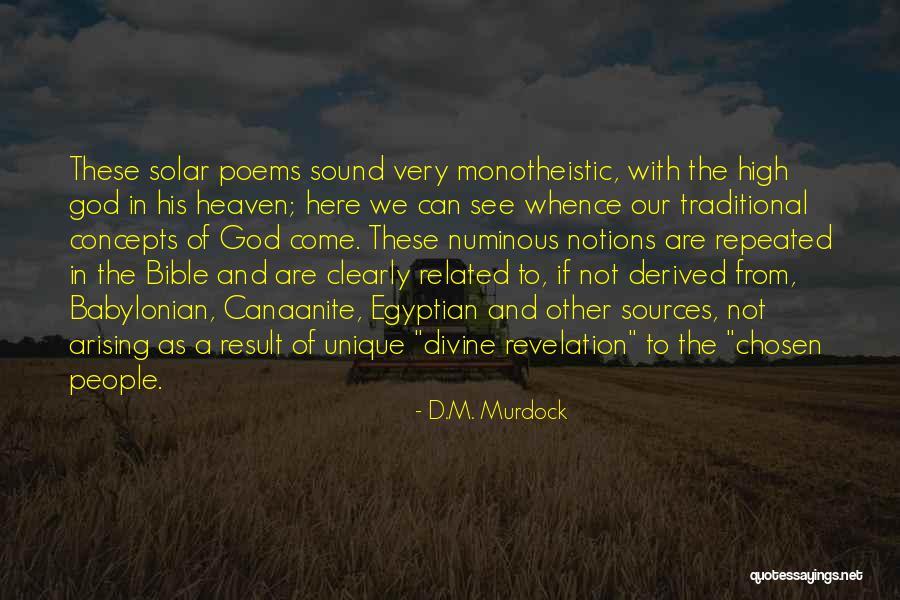
These solar poems sound very monotheistic, with the high god in his heaven; here we can see whence our traditional concepts of God come. These numinous notions are repeated in the Bible and are clearly related to, if not derived from, Babylonian, Canaanite, Egyptian and other sources, not arising as a result of unique "divine revelation" to the "chosen people. — D.M. Murdock
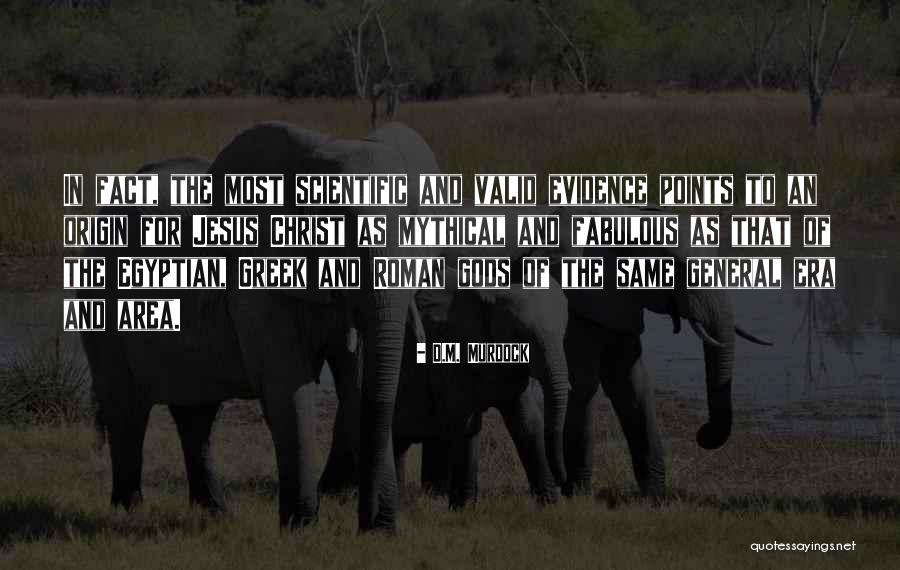
In fact, the most scientific and valid evidence points to an origin for Jesus Christ as mythical and fabulous as that of the Egyptian, Greek and Roman gods of the same general era and area. — D.M. Murdock
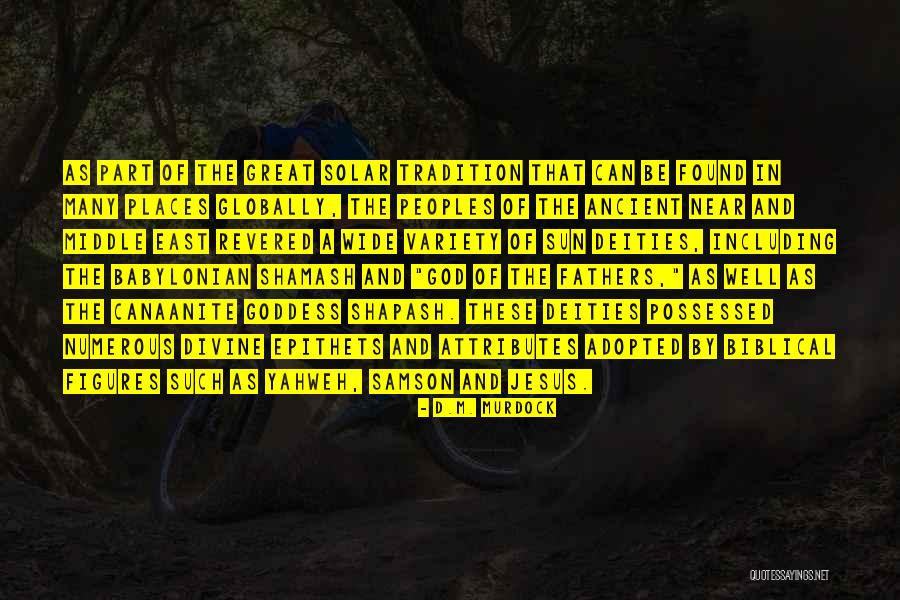
As part of the great solar tradition that can be found in many places globally, the peoples of the ancient Near and Middle East revered a wide variety of sun deities, including the Babylonian Shamash and "god of the fathers," as well as the Canaanite goddess Shapash. These deities possessed numerous divine epithets and attributes adopted by biblical figures such as Yahweh, Samson and Jesus. — D.M. Murdock
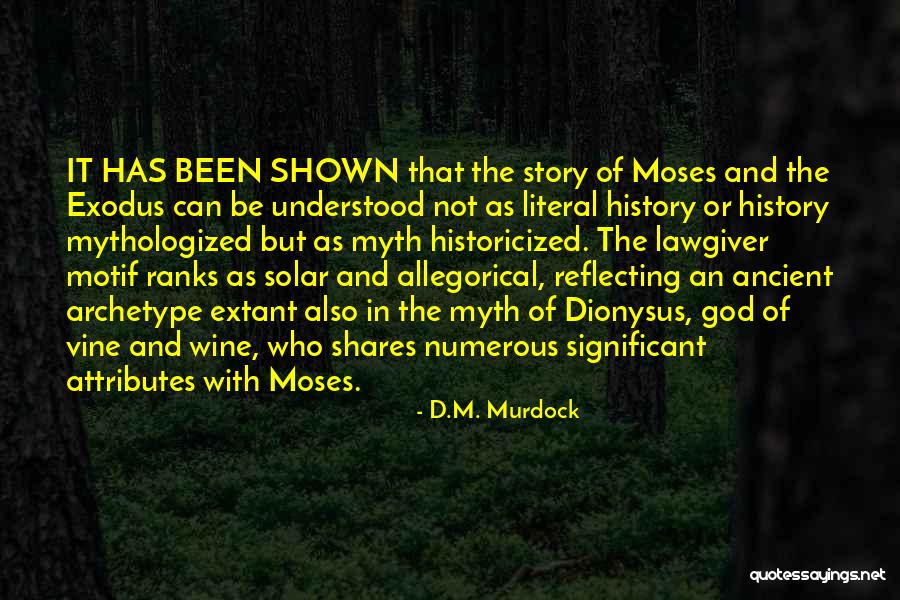
IT HAS BEEN SHOWN that the story of Moses and the Exodus can be understood not as literal history or history mythologized but as myth historicized. The lawgiver motif ranks as solar and allegorical, reflecting an ancient archetype extant also in the myth of Dionysus, god of vine and wine, who shares numerous significant attributes with Moses. — D.M. Murdock
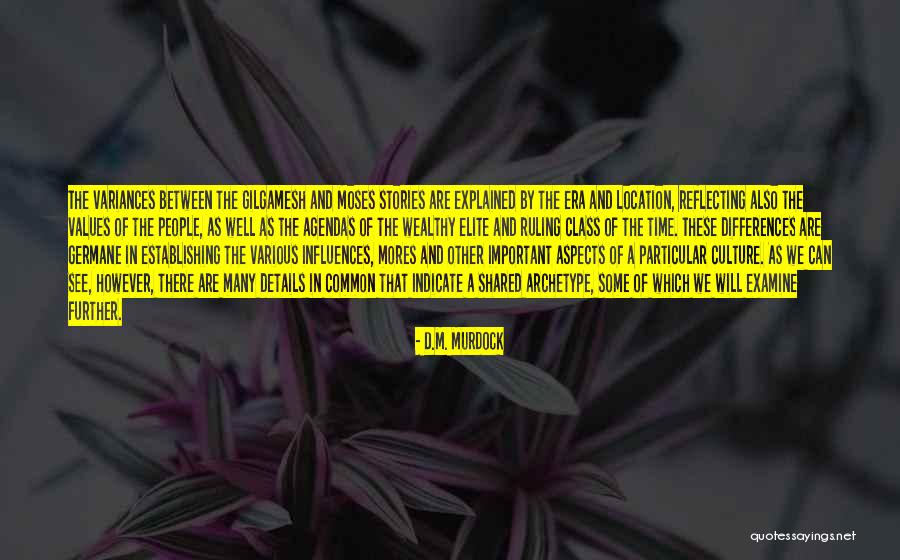
The variances between the Gilgamesh and Moses stories are explained by the era and location, reflecting also the values of the people, as well as the agendas of the wealthy elite and ruling class of the time. These differences are germane in establishing the various influences, mores and other important aspects of a particular culture. As we can see, however, there are many details in common that indicate a shared archetype, some of which we will examine further. — D.M. Murdock
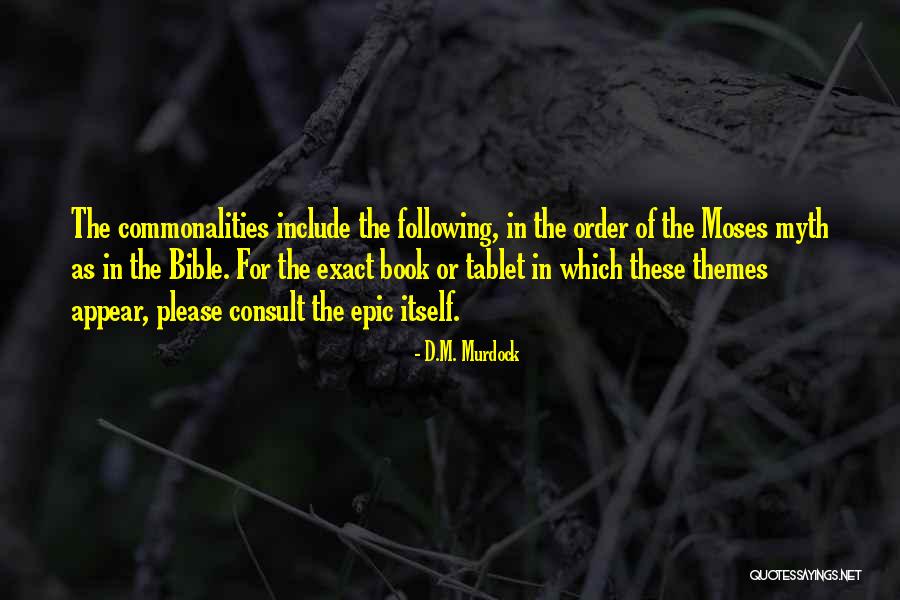
The commonalities include the following, in the order of the Moses myth as in the Bible. For the exact book or tablet in which these themes appear, please consult the epic itself. — D.M. Murdock
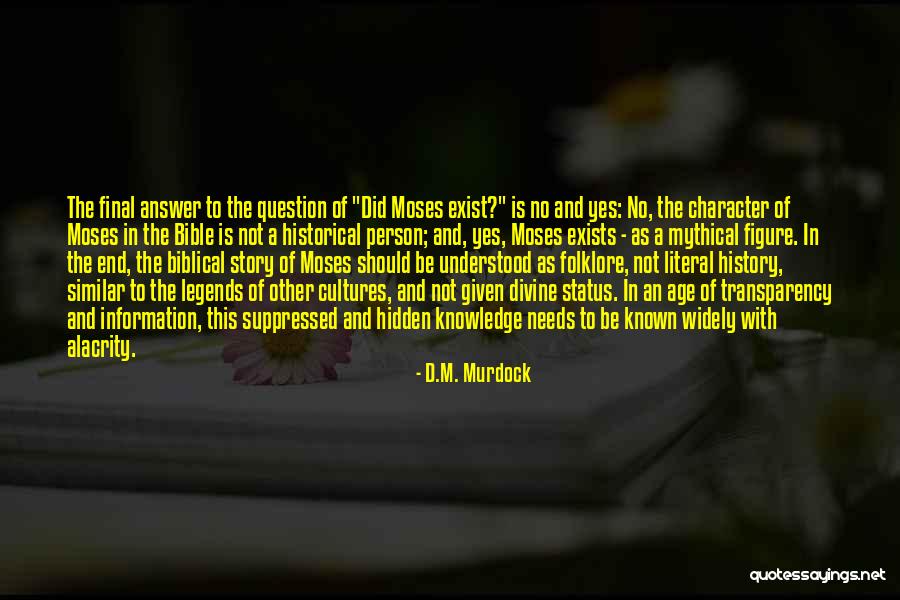
The final answer to the question of "Did Moses exist?" is no and yes: No, the character of Moses in the Bible is not a historical person; and, yes, Moses exists - as a mythical figure. In the end, the biblical story of Moses should be understood as folklore, not literal history, similar to the legends of other cultures, and not given divine status. In an age of transparency and information, this suppressed and hidden knowledge needs to be known widely with alacrity. — D.M. Murdock
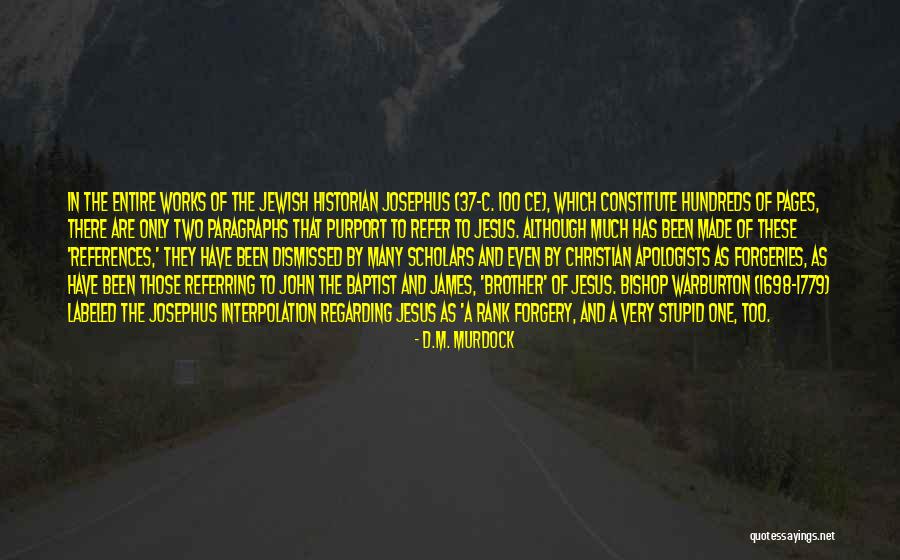
In the entire works of the Jewish historian Josephus (37-c. 100 CE), which constitute hundreds of pages, there are only two paragraphs that purport to refer to Jesus. Although much has been made of these 'references,' they have been dismissed by many scholars and even by Christian apologists as forgeries, as have been those referring to John the Baptist and James, 'brother' of Jesus. Bishop Warburton (1698-1779) labeled the Josephus interpolation regarding Jesus as 'a rank forgery, and a very stupid one, too. — D.M. Murdock
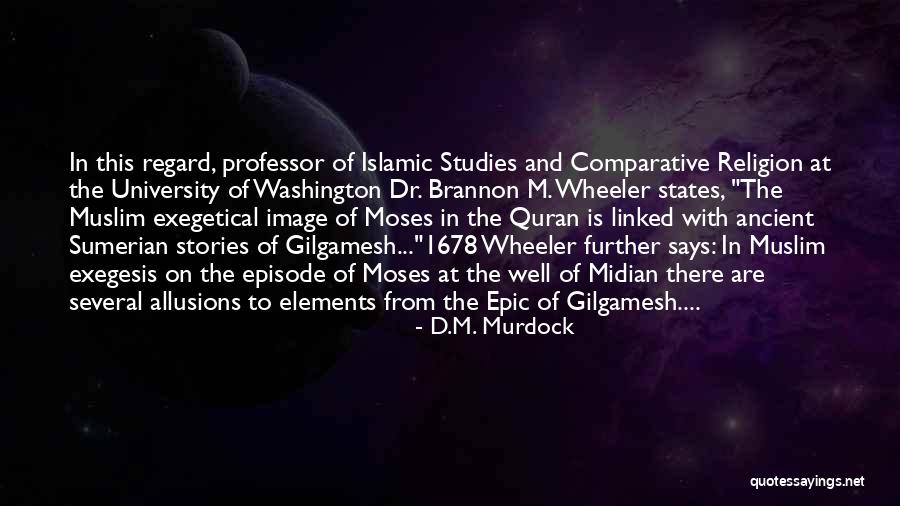
In this regard, professor of Islamic Studies and Comparative Religion at the University of Washington Dr. Brannon M. Wheeler states, "The Muslim exegetical image of Moses in the Quran is linked with ancient Sumerian stories of Gilgamesh..."1678 Wheeler further says: In Muslim exegesis on the episode of Moses at the well of Midian there are several allusions to elements from the Epic of Gilgamesh.... — D.M. Murdock





